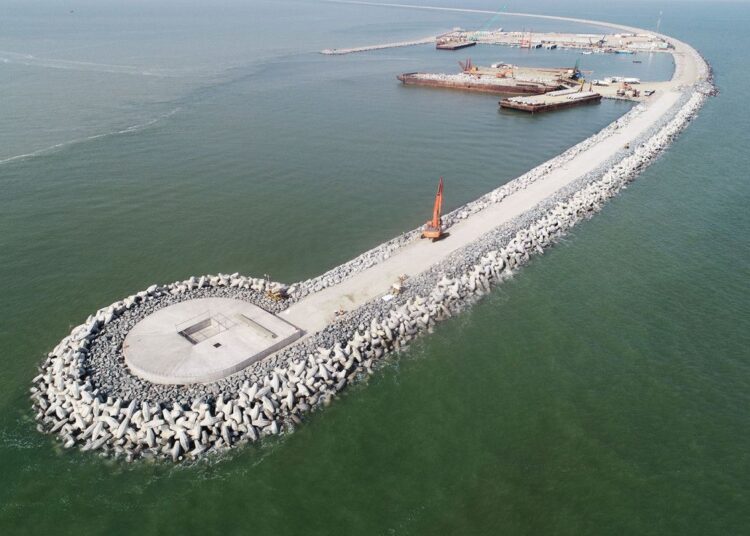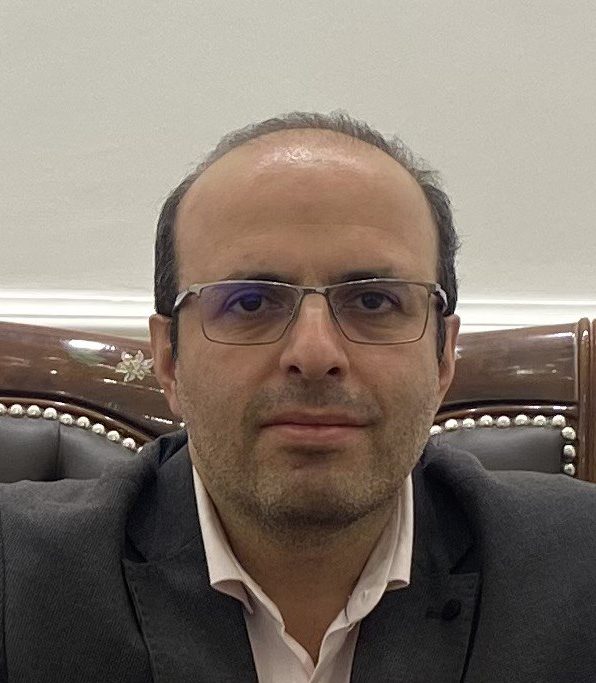Faw Grand Port project enables Iraq to capitalize on its geographical location, transforming it into a pivotal gateway for trade between the Persian Gulf and Europe.
By Ali Mousavi Khalkhali
Faw Grand Port looms as one of the most significant and ambitious construction projects in Iraq, in which Iraqis have invested heavily. Sited in western-coastal Persian Gulf, this port possesses a privileged geopolitical position that facilitates major economic transformation in the country while posing as a formidable contender against regional ports like those in the United Arab Emirates, Kuwait and Qatar. This grandeur project potentially offers an optimal alternative to the Suez Canal and eases access for exporting commodities to Europe and even the eastern Mediterranean utilizing the port’s unique location.
This colossal project commenced way back in 2010; however, intense focus on the project has amplified and with the increasing revenue from Iraq’s oil industry, the government has allotted $400 million towards its completion by 2022. The former Prime Minister of Iraq, Nuri al-Maliki, once considered this development a prominent indication of Iraq’s new era. Original estimates for the project slated its completion within four to five years, yet it has taken much longer than anticipated. However, there has been progress in the construction of the breakwater, which is currently in the final stages and has been registered in the Guinness Book of Records.
Salman Mahyoub, an expert in international transportation, remarks, “Faw port can easily turn Iraq into a destination for global trade and transportation, because the relatively short distance that connects Iraq to the ports of the Red Sea and the Mediterranean, as a huge dry channel can transport a large part of world trade.” Mahyoub contends that Faw’s construction design incorporates the creation of a city abundant with tourism amenities and lakes, which can potentially generate around 14,000 jobs and increase Iraq’s revenue by $1-3 billion annually.
Ever since the conception of Faw Grand Port, many obstacles emerged from Kuwait and other opposing groups who argue that the completion of this project will not only make Mubarak port ineffective, but also geo-economically will cause Kuwait to suffocate.
Al Jazeera website reported that the project, designed by an Italian company, is supposed to have a capacity of 99 million tons annually, putting it among the largest ports in the Persian Gulf and the tenth in the world.
Connecting Faw port to Türkiye
The Iraq government aims to put Faw port into operation by the end of 2024 while connecting the imminent port to Ceyhan port in Türkiye. To realize this endeavor, a four-lane expressway from Basra to Mosul – built during the 1980s – will advance the construction of an additional highway from Faw Port to Basra, covering 52 kilometers and belting to one of the main roads.
The Development Road Project, unveiled in Baghdad in early June 2023, will span an estimated 1,200km and estimated by the Iraqi government to cost around $17 billion. Presently in its initial stage, the project seeks cooperation from neighboring nations, including Qatar, the United Arab Emirates, Kuwait, Oman, Jordan, Türkiye, Iran, and Saudi Arabia, and the transportation ministries of these nations were invited to Baghdad to attend a conference dedicated to the declaration of the project.
In a statement issued by the Iraqi parliament’s transport and economy committee, as reported by the Iraq News Agency, the project “will be an investment for participating countries and any country can complete a part of the project.” Furthermore, the statement highlighted that “the investment mechanism will be discussed and reviewed after holding a conference with the participating countries.” The committee also expressed optimism in completing the project within a timeframe of three to five years.
This project enables Iraq to capitalize on its geographical location, transforming it into a pivotal gateway for goods and trade between the Persian Gulf and Europe. As part of the project, 15 train stations for both goods and passengers have been defined, stretching from Basra in the south, traversing Baghdad, and culminating at the border with Türkiye.
The Iraqi Minister of Transport, Razzaq Muhaibes, affirmed the government’s intention to inaugurate the first phase of the Faw Port project by the end of 2025, noting that “the amount of achievements of Faw Port in the first phase was more than 50%.”
The Prime Minister of Iraq, Mohammad Shia’ Al-Sudani, during the June conference on the “Development Road Project”, underscored the significance of the endeavor, stating, “The development road is a very important project and its goal is to change the reality in the direction of establishing a strong economy by creating employment, financial leverage, and increasing the value of the GDP. This project is the foundation of a stable non-oil economy, a connecting hub serving the neighbors of Iraq and the region.”
The Prime Minister noted the considerable progress made toward completing Faw Grand Port under the larger framework of the project, adding, “This port will be the gateway to economic activity and the area built around it will be merged with modern cities that are among the smartest industrial cities in the world.”
Emphasizing the potentiality of intertwining history, culture, and common interests along this economic highway, the Prime Minister added, “The highways and railways built under this project will facilitate the transportation of products and employment. Their realization is a positive step towards improving the rights of the region.”
Iran and Faw port
Iraq anticipates connecting Iran to its south-north corridor, as well as to Faw Port, by finalizing the Basra-Shalamcheh railway project – a 30-kilometer addition. Consequently, Iraqis regard Iran’s east-west corridor as a complement to the Faw-Ceyhan project. While the construction of this railway line is reportedly progressing at a slow pace, it remains underway, predicted to reach completion within the next two years.
Some observers within Iran perceive Faw port as a competitor to Khorramshahr port and other Iranian ports, expressing reluctance to bring it to fruition. However, Faw port could benefit Iran significantly, streamlining Iran’s exportation and importation of goods. Assuming the completion of the Chabahar-Zahedan railway line, Iran’s east-west railway can be connected to the Shalamcheh-Basra railway line. Consequently, a wide railway network would materialize, connecting the East, Far Asia, and Iran to Iraq, and subsequently, Europe. This project could potentially augment Iran’s South-North Corridor project, which aims to connect Chabahar Port and Bandar Abbas to Astara in northwestern Iran and Ashgabat in northeastern Iran.
Simultaneously, Iran expects Iraq to approve a road corridor and railway line extending from Basra to the borders of Syria. This would ensure the integration of the Iranian railway network with those of Syrian and Lebanese Mediterranean ports. Saudi Arabia and Kuwait may also find this route appealing, as it eases their connection to the eastern Mediterranean shores.
In addition, Iraq has proposed a road and rail connection from Basra to Jordan, which has garnered interest from both Saudi Arabia and Kuwait. The construction of this corridor, if realized, could connect Saudi Arabia, Kuwait, Iraq, and Jordan.
The views expressed in this article are those of the author and do not necessarily reflect the positions of Iran Nuances.






